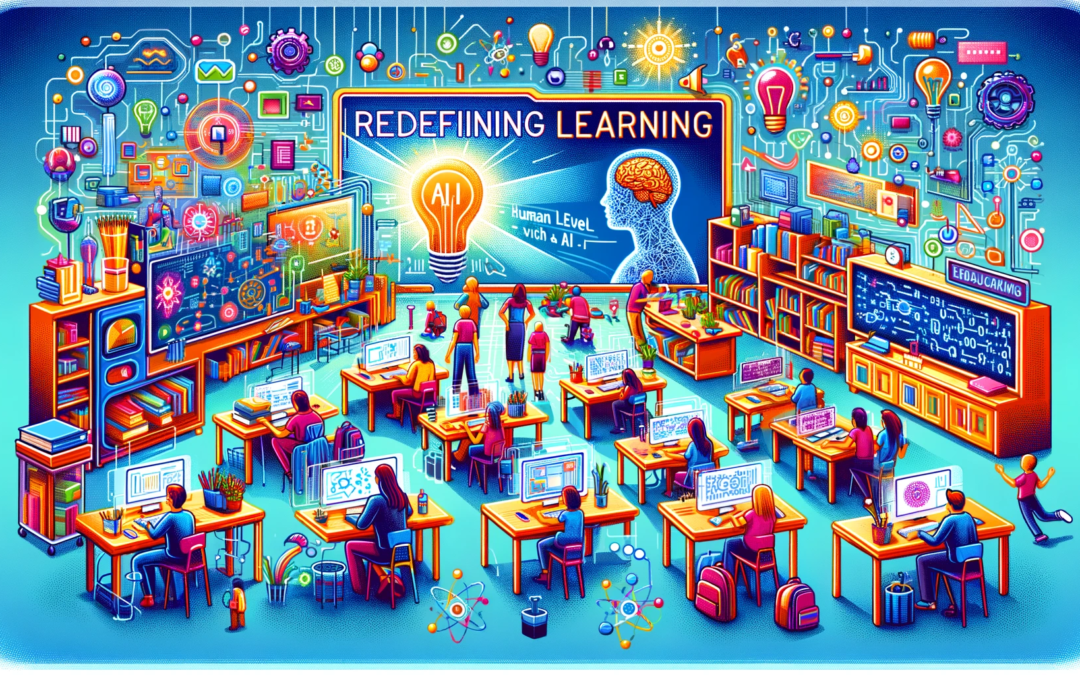Technology has been steadily transforming the field of education, and now, with the advent of AI, we stand at the precipice of a true revolution. The potential of AI to reshape educational systems and methodologies is immense, and in this blog post, we’ll explore the educational implications of AI and how it is redefining learning and teaching in the 21st century.
Personalized Learning
One of the most exciting aspects of AI in education is its ability to personalize learning experiences. AI-powered tools and platforms can adapt to the needs, abilities, and learning styles of individual students, providing tailored content and feedback. For example, AI tutors can identify gaps in a student’s understanding and provide targeted explanations and exercises to address those gaps. This level of personalization not only enhances student engagement but also improves learning outcomes.
Accessibility and Inclusivity
AI is also breaking down barriers to education by making it more accessible and inclusive. With AI, geographical and physical limitations are no longer obstacles. Students in remote areas can access high-quality education through online platforms, and AI tools can assist learners with disabilities, providing them with the necessary support and accommodations. AI is leveling the playing field and ensuring that every student has equal opportunities to learn and succeed.
AI in Curriculum Development and Teaching
AI is not just transforming the learning experience for students; it is also revolutionizing the way educators design and deliver curriculum. AI can analyze vast amounts of data to identify patterns and insights, helping educators create more effective and engaging learning materials. It can automate administrative tasks, such as grading and scheduling, freeing up valuable time for teachers to focus on what they do best: teaching. Additionally, AI can provide real-time feedback to students, enabling them to track their progress and make adjustments accordingly.
Preparing Students for an AI-Driven Future
As AI becomes increasingly integrated into society, it is crucial to prepare students for a future where AI will play a significant role. AI literacy and critical thinking skills are becoming essential for navigating the complexities of an AI-driven world. Education systems are adapting to this shift by incorporating AI-related topics into the curriculum and emphasizing the development of skills such as problem-solving, creativity, and adaptability. By equipping students with these skills, we are ensuring their success in a rapidly evolving job market.
Challenges and Ethical Considerations
While the potential benefits of AI in education are vast, we must also address the challenges and ethical considerations that arise. Data privacy is a major concern, as AI relies on vast amounts of personal data to function effectively. Additionally, we must ensure that AI does not reinforce biases in educational content or access, as this could perpetuate existing inequalities. Ethical implications, such as the responsibility of AI in decision-making processes, must also be carefully considered and addressed.
The Future of AI in Education
Looking ahead, the integration of AI into education is only set to grow. We can expect advancements in AI-driven learning platforms, virtual reality classrooms, and adaptive learning technologies. The traditional model of education is likely to undergo significant transformations as AI continues to evolve. As we venture into this future, it is essential to ask critical questions and engage in ongoing dialogue about the long-term impact of AI on education.
Engaging with the Audience
We would love to hear your thoughts on AI’s role in education and how it might impact your learning or teaching experiences. Do you see potential benefits or drawbacks? Join the conversation in the comments below and let’s explore the possibilities together!
Conclusion
AI has the power to redefine learning and teaching in ways we have never imagined. Through personalized learning, increased accessibility, and AI-supported curriculum development, education is becoming more effective, inclusive, and future-ready. However, we must navigate the challenges and ethical considerations that come with AI integration. By embracing AI thoughtfully and ethically, we can harness its transformative potential and shape the future of education for the better.
Visual Elements:
Image: AI-Enhanced Classroom
Image: Online Learning Platform
Image: AI-Driven Educational Tools
Infographic: AI in Education Statistics
SEO Elements:
By delving into the transformative potential of AI in education, we can gain valuable insights into the future of learning and teaching in an AI-driven world. Let’s embrace the possibilities and shape a future where education is accessible, inclusive, and empowering for all.










